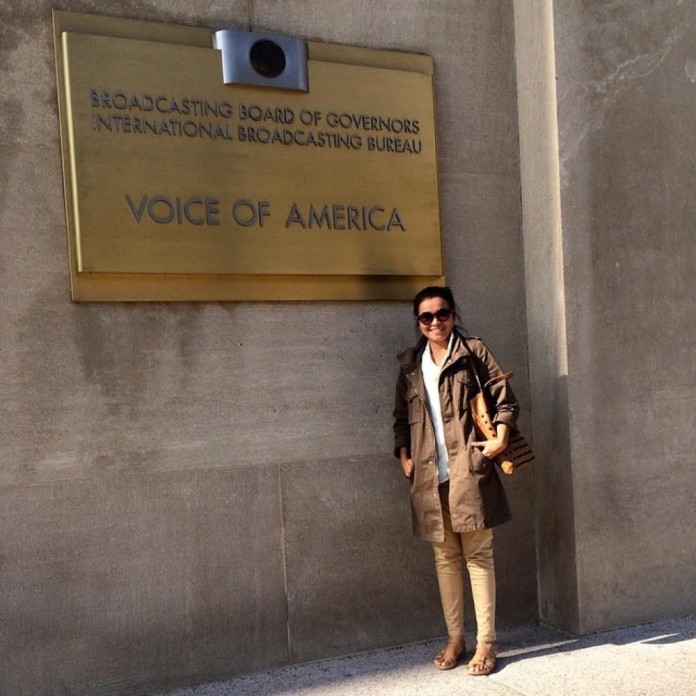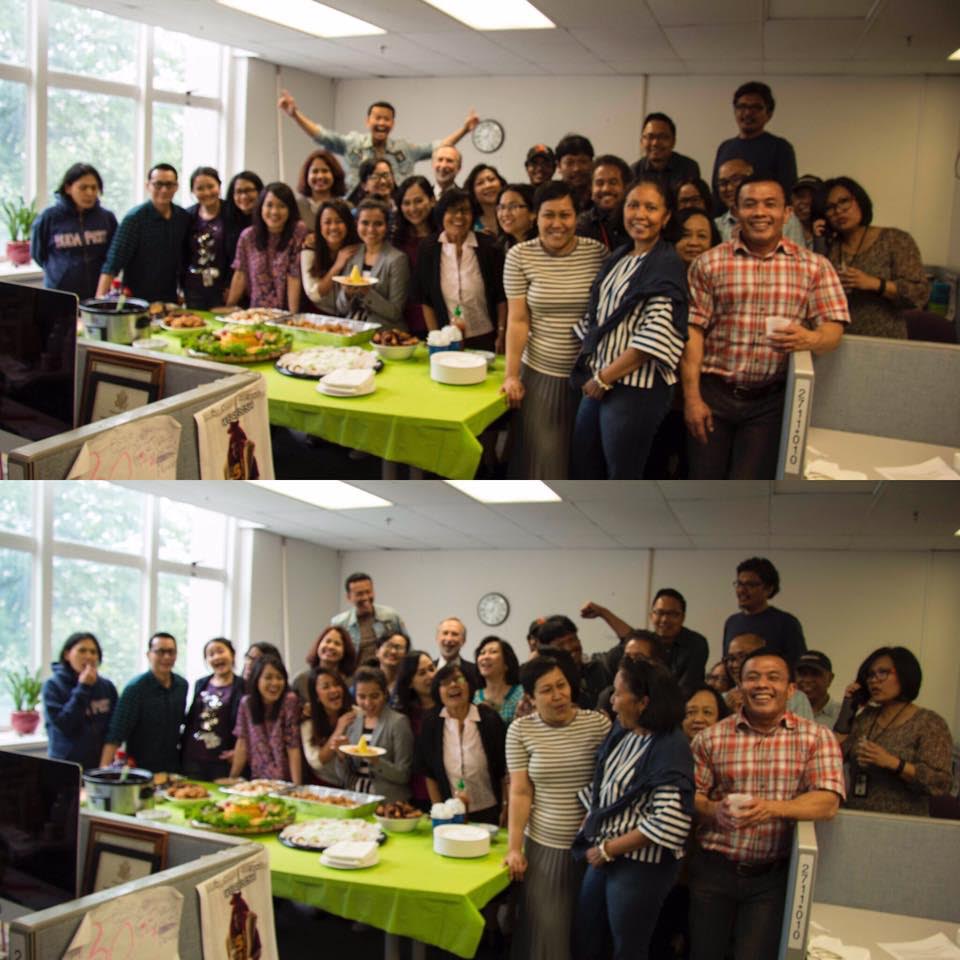
In this article, journalist Stela Nau shares her experiences during her fellowship at the Voice of America, an American international radio broadcast source based in Washington, DC. She talks about her journey through the interview process and shares some tips on how you can follow your dreams.
Dreams don’t work unless you do – John C Maxwell
I never thought that one day I could go to the United States of America. It was just a dream until I decided to be a journalist in 2012 after I graduated from college. After my second year of being a reporter, I found out about the PPIA – Voice of America Broadcasting Fellowship Program. It took me six months to prepare the application form and TOEFL score as required and another four months of putting hard-work in order to pass the two interview sessions. I still remember that feeling when I got a call from the panelist and they told me I passed all the selection processes back in 2015. Next thing I knew, I was living my American dream.

Voice of America (VOA) has given me plenty of life-lessons. The coworkers and the office culture have shaped me to be a better journalist. It let me bring my own ideas, putting it into narratives and taught me how to create my own budget and schedule. There were a lot of valuable work-related experiences but if I had to choose, producing a documentary on animal rights would be the best episode I’ve ever done. At that time, I was wondering why Americans are so protective toward their pets. Why do they have National Animal Rights Day? To find out, I covered the animal lovers community and also made a story about being a pet sitter. Through the filming, I discovered that humans can also have a beautiful relationship with other creatures. I realized these were probably simple things that some Indonesians consider unimportant. That is why by making this documentary, I wanted them to see what I’ve seen. After it went on air, some viewers gave me positive responses. On a personal note, I learned to treat animals with compassion, something I hardly practiced before I went to the States.
Speaking of living in a country where you can be who you really are, I’ve also had my ‘work hard play harder’ moments. The United States was my dreamland. I managed to visit most of my favorite cities like New York, San Francisco, Los Angeles, and Miami during my internship. Aside from that, Washington DC turned out to be the best place for me to gain knowledge for self-development. Its historical places and capitol vibes make me want to approach more of what life can offer. I still recall the day when I was in awe after seeing Americans actually following day-to-day rules, such as waiting in line for something, actually throwing trash in the garbage, and waiting for the light to turn green before crossing. The memories of me wandering around the museums, walking at night in the sleepless city, and making new friends who felt like my own family are treasures that I will cherish forever. It might scare you at first to suddenly find out that you are all alone far away from your home. But believe me, coming out of your comfort zone isn’t always as hard as it may seem.

VOA is an international broadcasting company owned by the US government. It has a lot of news services networks within itself and one of them is an Indonesian service where you will be placed. Every year, PPIA-VOA will select one bright young journalist from Indonesia to work as a fellow in its office center at Washington DC. There are three steps of the selection process. First, you need to fill in the application form which can be downloaded from VOA’s official website. The announcement will come out usually during November and the application is available until December. I would recommend checking their website every so often. The application will consist of the usual personal information such as name and email, as well as some essay prompts. Remember, be honest when you do your paperwork because the panelists want to see what you have been doing for at least the last two years. You need to elaborate on how good you are in your job as a journalist so that they can understand your character and potential. Let’s say you have covered some important either national or international events; instead of only explaining your job as it is, you could take one of your best professional encounters as an example of how well you managed your time while you were working under pressure. Set aside some time to examine your track record and contact some of the previous fellows to get to know the way VOA operates. It will give you more viewpoints while you compose your essay.

Secondly, if you get through to the next step, you will get an interview by phone. They won’t let you know when so please be prepared anytime if one of the panelists call you during the day. They will ask you several questions related to what you already wrote in your essay. Along with that, they also want to hear what is your ultimate motivation when you apply for the fellowship program. This session will prove them information on whether your essay is reliable or just a made-up story. It’s normal to get nervous at first, but remind yourself to stay calm. Try to find the best spot to have a phone conversation with the panelist and then pay attention to their questions.
The last step, you’ll be having an interview through Skype with some of the senior journalists from VOA Washington DC. In this last session, you need to point out your storyboard ideas, what kind of project that you wish to make with VOA. In my case, I did my own research and contacted some of the sources I found on social media who happened to live in the United States. I told them about my project and asked their permission to film their side of stories. Having the panelists know about your prospective project is essential as long as you have all the needed information. By proposing your own idea, it will show that you are one step ahead, creative and flexible in being a journalist. Afterward, you just have to wait for the final decision. It will be given between two weeks and a month depends on how many potential candidates there are. The chosen fellow then will get to spend a year working with VOA in Washington DC, United States.
From my point of view, each person has a different style of making their dreams come true. Some people said beside preparation and hard work, you also need luck. However, I chose to side with Collin Powel’s belief, “A dream doesn’t become reality through magic. It takes sweat, blood, and tears.” May all of your dreams find its way to be more than just a daydream.




Photos by author.






